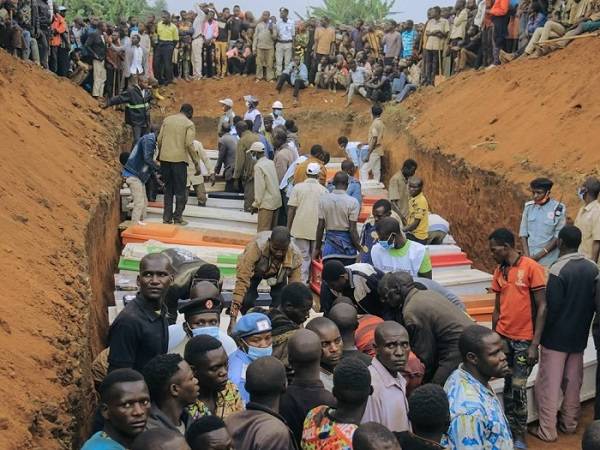
More than 40 people have been killed in an attack on a camp for internally displaced persons (IDP) in northeastern Democratic Republic of the Congo (DRC), according to local officials and activists.
Richard Dheda, an official of the local administration for Bahema Badjere in Djugu territory in the DRC’s Ituri province, said the attack on Lala camp early on Monday was carried out by fighters belonging to a coalition of militia groups called the Cooperative for the Development of the Congo (CODECO).
CODECO claims to protect the Lendu community from another ethnic group, the Hema, as well as the DRC’s army.
Dheda was quoted as saying by the AFP news agency that at least 41 people were killed in the attack on the camp, located 5km (3 miles) from Bule, the site of a United Nations peacekeeping base.
Maki Lombe, a witness, also told the Reuters news agency he had seen “more than 40 bodies” lying on the ground. He survived by fleeing during the night, he said.
“They began to fire shots, many people were burned to death in their homes, others were killed by machete,” Desire Malodra, civil society representative, told AFP.
The victims will be buried in a mass grave, Charite Banza, head of a local civil rights group, told Reuters.
“We don’t have security here, we say it every day,” Banza said, flagging that the attack happened a few days after a dialogue between armed groups in Ituri.
“No reason for the bloody attack has yet been given,” he added. CODECO has frequently targeted displacement camps. It killed about 60 people at another camp near Bule last year, in one of its deadliest massacres.
Much of eastern DRC is plagued by dozens of armed groups, a legacy of regional wars that flared in the 1990s and 2000s. The country has the largest population of IDPs in Africa, with the United Nations (UN) estimating at least 5.6 million have fled their homes due to fighting.
In Ituri, where the number of IDPs at the start of the year stood at 1.5 million, claiming dozens of lives are common. —AFP/Reuters






